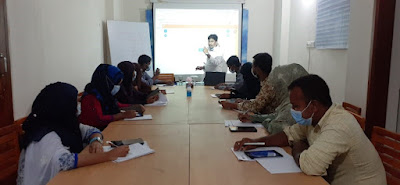“Prevent Learning Decay During COVID-19 in Bangladesh – Using Information Nudges and Telephonic Remedial Sessions” is an innovative initiative aimed at addressing the learning challenges faced by students during the pandemic. With schools closed and limited access to traditional classroom education, this program focuses on preventing learning decay and ensuring continued educational progress among students in Bangladesh.
The program utilizes information nudges, which are small, targeted messages delivered through various channels such as SMS, phone calls, or mobile applications. These nudges provide students and their parents with timely information, reminders, and resources to support ongoing learning at home. The messages may include study tips, educational materials, recommended activities, and guidance on accessing online learning platforms.
In addition to information nudges, the program offers telephonic remedial sessions to provide personalized academic support to students. Qualified teachers or volunteers conduct these sessions over the phone, addressing individual learning needs and providing guidance on specific subjects or concepts. The sessions help students clarify doubts, review material, and engage in interactive learning experiences, bridging the gap created by the absence of regular classroom instruction.
The initiative acknowledges the importance of continued education and the potential learning loss that can occur during extended school closures. By leveraging information nudges and telephonic remedial sessions, it aims to mitigate the impact of the pandemic on students’ academic progress and prevent learning decay.
Furthermore, the program considers the socio-economic disparities and challenges faced by students in accessing digital resources. Utilizing mobile phones as a medium for delivering educational support, ensures that a wider range of students, including those from marginalized communities, can benefit from the program.
“Prevent Learning Decay During COVID-19 in Bangladesh – Using Information Nudges and Telephonic Remedial Sessions” is a comprehensive and inclusive approach to supporting students’ education during the pandemic. By combining technology, personalized guidance, and targeted messaging, the program strives to minimize the disruption caused by the crisis and maintain educational continuity for students in Bangladesh.
Funding authority
Abdul Latif Jameel Poverty Action Lab (J-PAL)
Project Investigators
1. Dr. Abu S, Shonchoy, Florida International University, USA.
2. Dr. Tomoki Fuji, Singapore Management University.
3. Dr. Christine Ho, Singapore Management University.
4. Dr. Rohan Roy, Post-doctoral researcher, National University of Singapore.
Project Duration
1 YEAR.
Project Period
September 2021 to September 2022
COVID-19 has created unprecedented difficulties for the education sector in Bangladesh, as schools remain closed since March 2020. To tackle this crisis, Bangladesh has taken a multi-pronged approach—delivering education through national terrestrial television. However, the uptake of these programs has been low among rural students.
Through a randomized field experiment, this study aims to test the impact of regular and repetitive information nudges on televised programs’ uptake delivered by SMS (Short Message Service) and automated voice calls to households. A random subset of treated students will additionally receive regular telephone-based tutoring support. The learning impact will be measured utilizing exams and SMS-based spot quizzes with achievement rewards.
This study will help understand effective solutions to reduce learning decay during the pandemic, which is scalable for both Bangladesh and other developing countries.
MOMODa FOUNDATION, a research-oriented development organization in Bangladesh, has rich experience in project implementation in collaboration with international academic and research institutions. The FOUNDATION has recently implemented the ‘Incentivizing School Attendance’ project.
In this continuation of success, a research team from the FOUNDATION will conduct this study coordinating with the local education department to connect with school headmasters to identify potential secondary schools and seek the agreements/consents from these schools to be part of the study. Then, the team will collect student details for this research before recruiting them and contact households over the phone to seek their informed consent for participation.
KEY FEATURES OF THE PROJECT
1. Objectives: This study aims to improve the learning outcomes or, at the least, prevent learning decay due to school closures during COVID-19.
2. Sample Size: This study sample will have 1,200 students attending grades 6 to 10 in four schools in the Gaibandha district in Bangladesh.
3. Data Collection: This study will implement simple information nudges through SMS and automated voice calls to increase viewership of Sangsad TV and live social medial classes for secondary school students.
4. Outcome measures: school continuation, attendance, and learning.
5. Duration: The project will continue up to September 2022.



